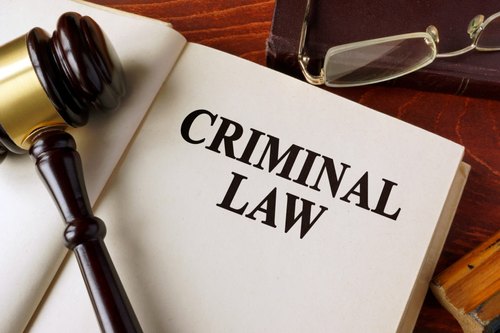Introduction
In the complex world of legal issues, finding yourself facing criminal charges can be daunting. Whether you are wrongly accused or made a regrettable mistake, having the right legal representation is crucial. This article aims to guide you through the process of finding a reliable criminal lawyer near you, highlighting the importance of local expertise and personalized attention.
Why You Need a Criminal Lawyer
Legal matters are intricate, and navigating the legal system without proper representation can be risky. A criminal lawyer serves as your advocate, ensuring your rights are protected and providing a strong defense against the charges you face.
Importance of Hiring Local Representation
When dealing with criminal charges, the legal landscape can vary significantly from one jurisdiction to another. Hiring a local criminal lawyer ensures they are well-versed in the specific laws and procedures of your area, giving you a strategic advantage.
Understanding Criminal Charges
Common Criminal Charges
Before delving into the benefits of local representation, it’s essential to understand the nature of criminal charges. From misdemeanors to felonies, various offenses can lead to legal consequences.
Legal Consequences
Criminal charges can result in severe penalties, including fines, probation, and even imprisonment. Understanding the potential consequences underscores the importance of mounting a strong defense.
Benefits of Hiring a Local Criminal Lawyer
Knowledge of Local Laws
Local criminal lawyers have a deep understanding of the legal nuances in your jurisdiction. This knowledge can be instrumental in building a defense tailored to the specific laws governing your case.
Familiarity with Court Systems
Beyond legal knowledge, a local criminal lawyer is familiar with the court systems and personnel in your area. This familiarity can streamline the legal process and contribute to more effective representation.
Factors to Consider in Choosing a Criminal Lawyer
Experience and Expertise
When selecting a criminal lawyer, prioritize experience and expertise. Look for a professional with a proven track record in handling cases similar to yours.
Client Reviews
Reading client reviews provides insights into a lawyer’s reputation and their ability to deliver favorable outcomes. Peer testimonials can be valuable in gauging the lawyer’s effectiveness.
Criminal charges refer to formal accusations made by law enforcement or prosecutors, asserting that an individual has committed a criminal offense. The nature of criminal charges varies depending on the severity and type of offense. Charges can range from minor infractions, such as traffic violations, to serious felonies, such as murder or robbery. Each criminal charge is categorized based on the offense’s severity, with distinctions made between misdemeanors and felonies. Misdemeanors are typically less severe and carry lighter penalties, while felonies involve more serious crimes and can result in long prison sentences or even the death penalty in extreme cases. The nature of criminal charges also depends on the legal system in which they are prosecuted, as different jurisdictions may have varying definitions and penalties for the same offense. Regardless of the offense, criminal charges trigger a legal process where the accused is entitled to a defense, and the prosecution must prove the individual’s guilt beyond a reasonable doubt.
Legal Fees
Discussing legal fees upfront is essential to avoid surprises. While cost is a factor, it should not be the sole determinant. Balance affordability with the lawyer’s qualifications.
Initial Consultation: What to Expect
Gathering Information
During the initial consultation, expect the lawyer to gather information about your case. Be honest and thorough in providing details, as this lays the foundation for a robust defense strategy.
Discussing Legal Strategies
A reputable criminal lawyer will discuss potential legal strategies based on the details you provide. This transparency helps you understand the potential outcomes and the lawyer’s approach.
Building a Strong Defense
Investigating the Case
A crucial aspect of building a defense is a thorough investigation. Your lawyer should leave no stone unturned, gathering evidence and information to strengthen your case.
Negotiating with Prosecutors
Experienced criminal lawyers often engage in negotiations with prosecutors to explore alternatives to trial. Skillful negotiation can lead to reduced charges or favorable plea deals.
Courtroom Representation
In the event of a trial, your lawyer’s courtroom representation is paramount. A confident and skilled attorney can make a significant difference in the outcome of your case.
Success Stories: Case Examples
Real-life Examples
Illustrating success stories through real-life examples provides tangible evidence of a lawyer’s capability. Positive outcomes in similar cases instill confidence in potential clients.
Positive Outcomes
Highlighting positive outcomes, such as dropped charges or minimized penalties, showcases the effectiveness of hiring a skilled criminal lawyer.
Client-Attorney Confidentiality
Importance of Confidentiality
Client-attorney confidentiality is a cornerstone of the legal profession. Emphasize the importance of confidentiality to foster trust between you and your lawyer.
Building Trust
Establishing trust is crucial for effective legal representation. Knowing that your conversations and information are kept confidential allows for open communication and collaboration.



